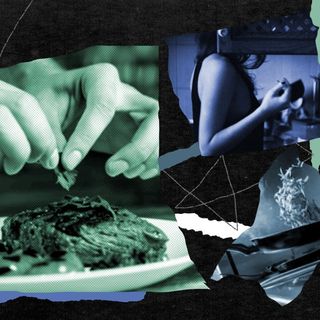The Covid19 pandemic has served as an unraveler of the deep-seated inequalities that plague our societies, of crumbling healthcare infrastructure around the world, and of the pervasiveness of right-wing populism and authoritarianism. The coronavirus outbreak has also revealed what matters to us — from the socio-political issues we care about, the friends we want to keep in touch with, the social norms we’d rather abandon, to the things we need more than others.
Even as the entire world comes together in fighting this pandemic, there’s one aspect that is markedly different from country to country, one that gives us an insight into what matters to a people, to their culture, and to their governments — essential services.
Many governments are being applauded for including alcohol and marijuana in their must-have list, including Canada, and some U.S. states. The Netherlands, for example, first vowed to close its ‘coffee shops’ or marijuana dispensaries — one of the biggest businesses in the country — only to backtrack and keep to-go services open to prevent a dangerous street trade from endangering people’s health. Even with alcohol, experts say the purpose of deeming it essential is to accommodate those dealing with alcohol dependency, which can be life-threatening if the supply is abruptly cut off. For the larger population in these places, alcohol has also become a coping mechanism to deal with the coronavirus pandemic — so much so, the World Health Organization had to put out a statement calling the practice unhealthy.
Others, such as the state of Florida in the United States, are making bizarre moves claiming to provide psychological relief for residents — it deemed professional sports and their media production an essential service, enabling the World Wrestling Entertainment (WWE) to set up shop with its performers, and a behind-the-scenes crew to bring some trussed-up faux fighting to Floridians’ screens. While the governor who okayed the inclusion of WWE said he did it to boost the Florida economy, and WWE said they’d deliver a “sense of hope, determination and perseverance” to their viewers, some found the move fishy. WWE leadership includes close allies of President Trump, which cast doubts upon why a close-contact sport was chosen as an addition to a Covid19 essentials list that includes food, healthcare and electricity.
“We are in the middle of a public health crisis and the American people need to know the government is putting their needs first,” Kyle Herrig, president of a watchdog group, Accountable.US, said in a statement. “It is unfortunate but hardly surprising that corporate executives with close ties to President Trump are receiving special treatment from his allies. Like wrestling, the fix is in.” Other commodities deemed essential in the U.S. follow a similar pattern — gun stores, shooting ranges and weapons manufacturing all saw their business booming. Many other states have accommodated golf — one of Trump’s favorite pastimes — into its essential services list. While some Americans might benefit from these services, their niche appeal throws their essentiality, and the lawmakers’ motives, into question.
Other facilities deemed essential to ensure convenience include bike shops in the Netherlands and Germany, tobacco shops and dry cleaners in France, even an app that sells fish — a community staple — in West Bengal, India.
Related on The Swaddle:
It’s Okay: To Sometimes Enjoy Being In Quarantine
And with the latter lies another category of essential services — the cultural staple. In Belgium, where french fries are considered food for the soul, the government has allowed roadside french fries stands, called friteries, to operate, with strict instructions from the government to customers to maintain social distancing in the queues and not loiter after they’ve collected their order. In France, wine shops are delivering people in lockdown “survival” packs, and bakeries are offering french baguettes. In Italy, a country with a majority of older people, the government is keeping newsstands open so people can stay apprised of Covid19 news in lockdown.
At the end of the day, be it sweetmeat shops in West Bengal, churches in Brazil, or hair salons in Australia, what remains open in the time of coronavirus shows us the values we ascribe to services we took for granted before the pandemic and the lengths we will go to surround ourselves with familiar things in times of such uncertainty.
While we needto make sure essential services such as food, medicine and shelter are available across all income classes first, the scale and longevity of social distancing required to weather the Covid19 pandemic — one experts warn could have to last until 2022 — begs the question: what do we require to stay sane, when our basic needs are met?




